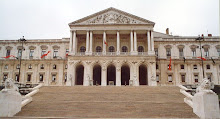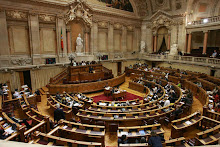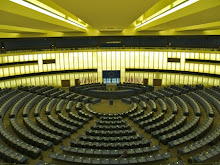Yesterday, the Nobel Prize-winner economist Joseph Stiglitz, on an interview to the BBC Radio 4, revealed he is “concerned” about the conditions of the agreement to the Greece rescue package and the future of the Euro.
Stiglitz alerts to the question of the fiscal austerity. With the plan of fiscal austerity, the reduction of the economic activity and the consequent contraction of the private consumption will lead to the decline of the tax incomes for the Greece State and this fiscal impact will aggravate the situation of public debt.
For Stinglitz this is just the first indication of the end of “euro” unless the European Union gets successful on resolving the institutional problems that are on the base of “euro” fragilities. On his understanding, the creation of a fiscal union is an imperative for the future existence of the “euro”, because this way the “euro” get supported on a strong fiscal policy and remove the capability of the market attack to the weakest euro countries, for the reason that their finances are part of the global Euro Zone.
And that is the old question that several economists and politicians discuss since the “euro” creation, the problem of the fiscal competitive advantage of the economic strong countries face to the weak ones when they are on a Eurosystem scenario. We can see this question on the reality of our everyday lives when we know that, unlike the great majority of the population, all the Portuguese, who live near the border with Spain, have the opportunity to choose if they want to go “next door” and, for example, buy fuel at 30 cents lower price than the Portuguese, because the tax rate on fuel there is inferior than the tax rate applied in Portugal, or make those consumes in Portugal and pay a lot more. If they choose to go shopping “next door” they are making a contribution to the Spanish growth and to the Portuguese debt and low economic growth. That is what we usually call the “fiscal advantage”. This means that countries with better Public Finances situation can have lower tax rates and that will be an attraction factor for investments and consumers. Also it will allow the companies of those countries to be more competitive compared to countries where the firms must pay higher taxes.
This situation creates an exit flux of money from the countries with the most fragile Public Finances to the ones with the strongest Public Finances, aggravating the gap between those countries. And this is one of the problems to Governments like the Portuguese Government in the Euro zone. Before, the “euro” Governments had the liberty of devalued the escudo exchange rate and with that compensating the differential of the internal prices face to the external ones. But in the Eurosystem it is no longer a possibility; States no longer have on their hands the monetary policies. But have no doubt, we have been more than compensated for that cost, and the interest rate is one of the most perfect example of that. If Portugal was out of the Euro Zone the actually Portuguese interest rate would be near the 15% or 20% year.
Other reason for defending the fiscal union is the imposition, from European levels, of the amount of taxes income that the Governments have to spend, because they no longer have the capability to increase the tax rates of their taxpayers. So, they would know approximately the budget they have to use and could not resort to the increasing of the tax rates “arm” to get more incomes; they only can get more incomes by having an economic growth. This way, they got to be more discipline with their budget policies and, consequently, with the State debts.







